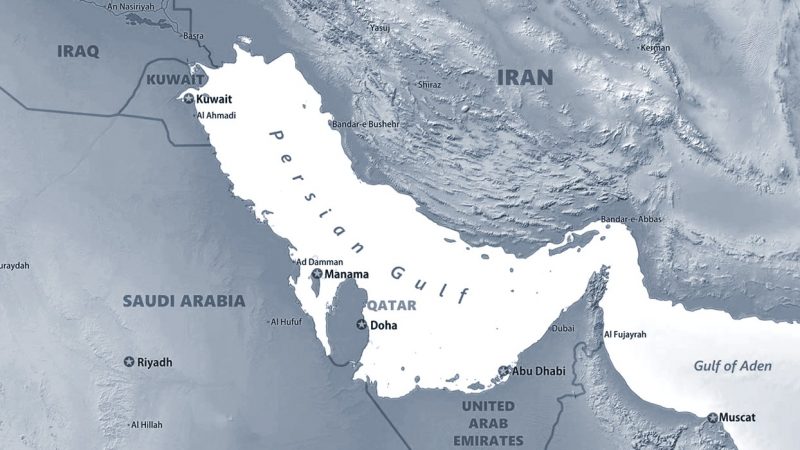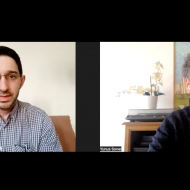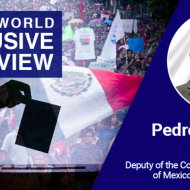Western hegemony is experiencing a serious breakdown around the world, not only in their internal dynamics, but also in the international balance of power.
While this collapse has resulted in economic, social, cultural, and political disasters, the rivalry developing around partitioning areas of retreat continues, complimenting the proverb that “nature abhors a vacuum”.
While some forces which were assumed to be eternal enemies are now fighting alongside one another, some alliances assumed unbreakable are falling like a house of cards.
The emirates of the Gulf, brought into existence by the British Empire, also seem caught up in this inescapable vortex.
Let us take a closer look at the changes and the disarray within Gulf geography, a situation which is important to Turkey given its economic relations with one of these nations: Qatar.
‘NORMALIZATION’ WITH ISRAEL
Debates about the “Deal of the Century” introduced by US President Donald Trump are still ongoing among the
Gulf countries.
The recent developments point out that the deal, which was presented to the world as the Arab-Israeli “peace”, has 3 main goals;
1. The dissolution of the Palestinian independence struggle and the diplomatic recognition of Israel by all Arab nations,
2. Positioning the Arab nations on the frontier of the US-Israeli plans against Turkey and Iran,
3. The consolidation of the US-Israeli hegemony upon the Arabian geography.
The United Arab Emirates (UAE) has been the country which has shown the greatest support to the new version of the Greater Middle East Project, the so-called “Deal of the Century”.
While mutual agreements were signed between the UAE and Israel under the patronship of the Trump administration, Bahrain and Oman were second in line for the “normalization”.
While the US-Israeli, and Emirati media have been giving out the messages of “peace” to the world with their strong propaganda networks, in the meantime, Saudi Arabia, the largest country in the Gulf, is not yet involved in the deal.
It was reported in the press that there were two main cliques within the Saudi leadership when it comes to making a deal with Israel, and that there was even a disagreement between the Saudi King Salman and the Crown Prince, Mohammed Bin Salman.
SAUDI ARABIA, IRAN AND BIDEN
The fact that while some of the Saudi officials have been sending the “doves of peace “ to Israel, Prince Turki Al-Faisal, who has served as the director of Saudi Intelligence for many years, criticizing Israel with the words “a Western colonial power (…) they incarcerated Palestinians in concentration camps” during a summit which was also attended by the Israeli Foreign Minister, confirms the allegations mentioned above.
One interesting fact about Prince Turki al-Faisal is that he is well-known for the creation of al-Qaeda and the war against many nations in the region, especially Iraq, Syria, and Afghanistan, and the terror attacks of September 11, in cooperation with the US deep state under the Bush administration.
It is likely that a purge will be commenced within the Saudi leadership in the coming days related to the relations with Israel.
It is interesting that the crack within the Saudi leadership has deepened further after the presidential elections were won by Joe Biden.
There were some disagreements between the Saudis and the United States during the Obama administration as well, and after the US-Iran nuclear deal, Saudi King Salman visited Moscow and gave statements in favor of a cooperation with Russia.
Therefore, the policies which the Biden administration will pursue against Iran will be decisive in Saudi-American and Saudi-Israeli relations.
It would not be shocking to see a Saudi leadership that is more distant from the United States, yet deepens its cooperation with Russia and China and yet, in the meanwhile, continues its regional rivalry with Iran, in the near future.
ANKARA AND RIYADH
Immediately after the US presidential elections were won by Biden, new events took place for the relations between Turkey and Saudi Arabia, which had been at odds for quite some time.
The messages of mutual friendship were given, right after the meeting between President Erdogan and King Salman.
The ease of tensions between Ankara and Riyadh could be perceived as preliminary for the Biden administration. The critical point here is, whether a normalization can be achieved between Ankara and Cairo through Riyadh, which is known to have an impact on Cairo.
It is very critical for Turkey to pay attention to political balance with Iran while normalizing its relations with Saudi Arabia. Turkey has the potential to bring the administrations of Riyadh and Tehran together, if it finds the right way to do it.
The provocations of the United States and Israel on the region could potentially be prevented in this way.
KUSHNER’S VISIT TO QATAR
It is known that Qatar, which has been left isolated by Saudi Arabia and the United Arab Emirates in the course of their regional rivalry, holds good relations with Turkey and Iran.
However, having good ties with Turkey and Iran does not mean that Qatar has moved itself away from the influence of the United States.
While the United States maintains a presence in Qatar with al-Udeid Air Base (the largest US base in the region), a comprehensive cooperation agreement was signed between the naval forces of these two countries in the last week.
Jared Kushner, Trump’s son-in-law and adviser and also known as the architect of the Arab-Israeli normalization project, paid a visit to Qatar last week.
It would not be wrong to say that the United States has tried;
1. To normalize the relations between Qatar and other Gulf countries,
2. To disrupt the relations between Doha and Tehran,
3. To also include Qatar in the Deal of the Century as a participant.
The upcoming events will show how Qatar will approach these proposals.
To sum up, the skies grew stormy all over again in the Gulf after Biden was elected.
The diplomatic retaliation of Turkey, Iran, and Russia in the Gulf area will surely disrupt the balances that the United States has established in the region.
Let us end the article, with a quote from Jacques Vergès, a French lawyer who made history with his unbelievable skills in the art of defense.
In one of his interviews, Vergès encounters the question “Would you defend Hitler as well?” and replies: “I’d even defend George Bush. But only if he pleads guilty.”
We can make a conclusion when it comes to the Gulf in a similar way to Vergès’ proposal; If the emirates of the Gulf emirates plead guilty and stop collaborating with imperialism, there will also be a place for them in Eurasia.









Leave a Reply